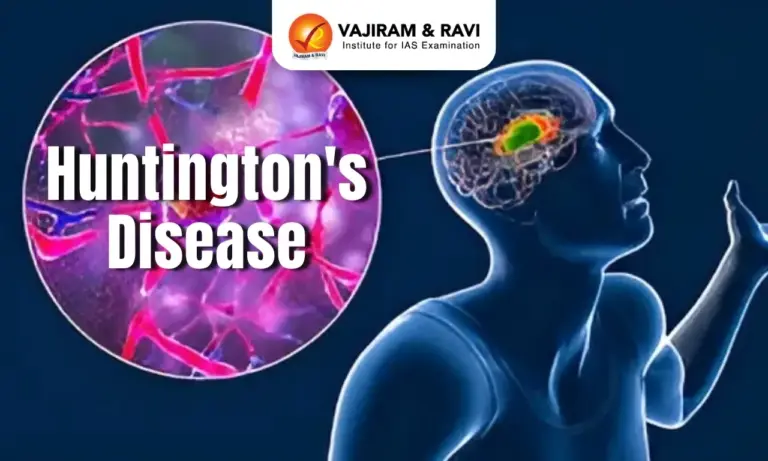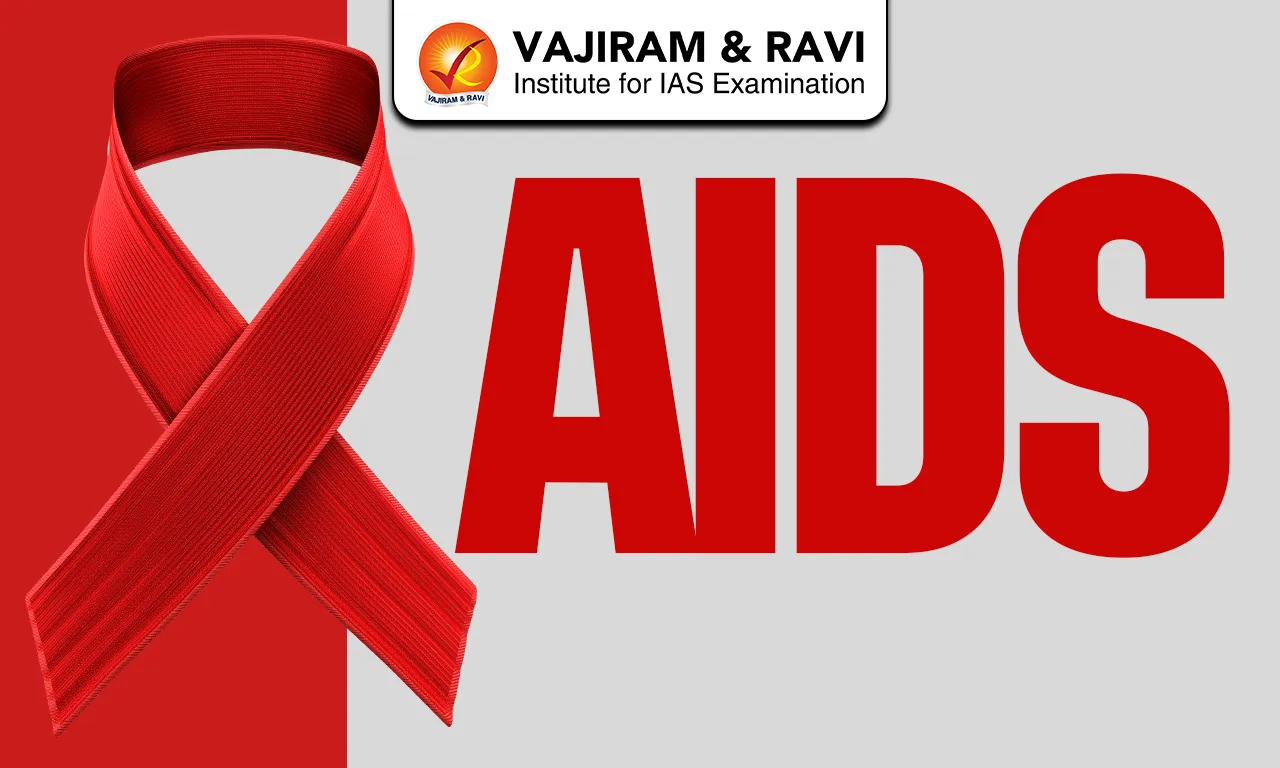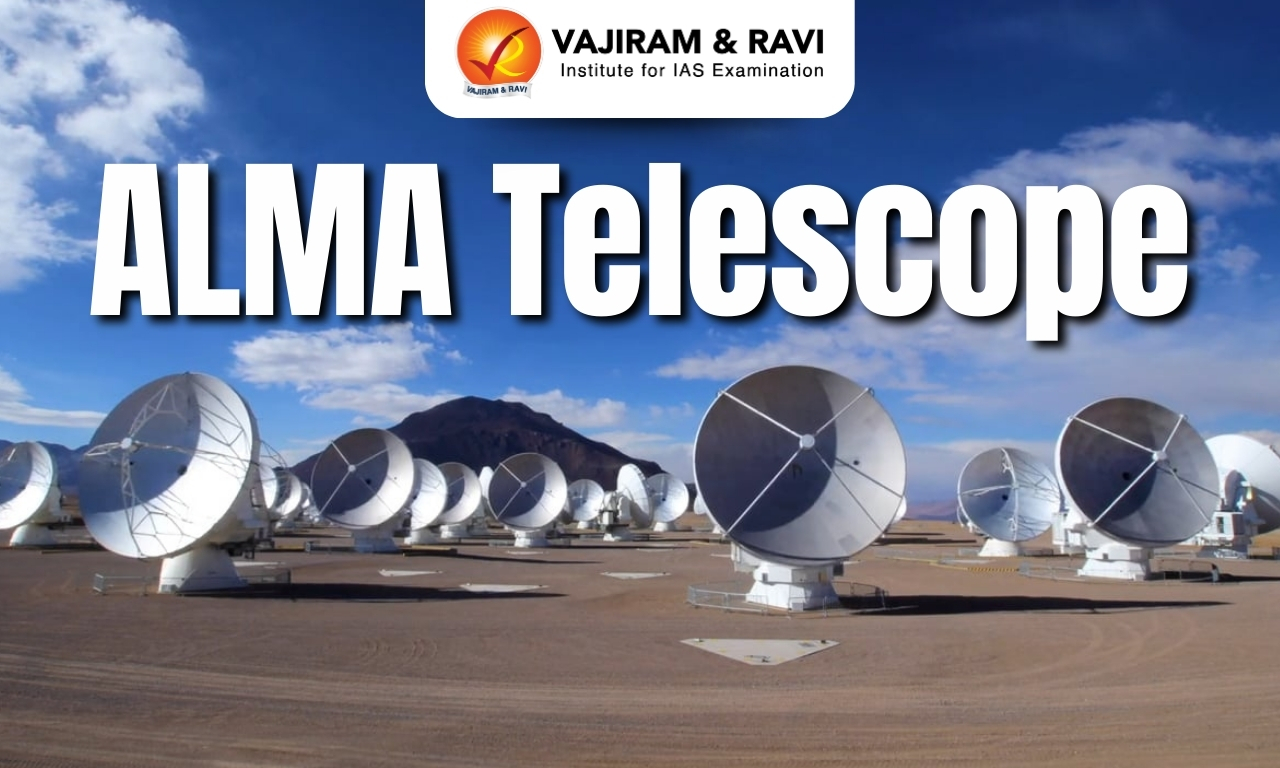Huntington’s Disease Latest News
Huntington’s disease (HD) has long been impossible to cure, but new research is finally giving fresh hope.
About Huntington’s Disease
- It is a rare hereditary disorder in which brain cells, or neurons, in certain areas of your brain start to break down.
- The destruction of nerve cells happens in the basal ganglia, or the region of your brain that regulates your body’s movements.
- It also affects the brain cortex (surface of your brain) that regulates your thinking, decision-making, and memory.
- As the neurons degenerate, the disease can lead to emotional disturbances, loss of intellectual abilities, and uncontrolled movements.
- What causes HD?
- A genetic mutation of the HTT gene causes HD. If one of your parents has HD, you have a 50% chance of also developing it.
- The HTT gene makes a protein called huntingtin. This protein helps your nerve cells (neurons) function.
- If you have HD, your DNA doesn’t have all the information needed to make the huntingtin protein.
- As a result, these proteins grow in an abnormal shape and destroy (instead of help) your neurons.
- Your neurons die because of this genetic mutation.
- How common is HD?
- HD affects an estimated 3 to 7 out of every 100,000 people, most often people of European ancestry (biological family comes from European descent).
- There are two main types of HD:
- Adult-onset: This is the most common type. Symptoms usually start after age 30.
- Early-onset (juvenile Huntington’s disease): This rare type affects children and teenagers. Symptoms appear before age 20.
- Symptoms:
- Common symptoms include uncontrollable dance-like movements (chorea) and abnormal body postures, as well as problems with behavior, emotion, thinking, and personality.
- Other symptoms may include tremor (unintentional back-and-forth movement in the person’s muscles) and unusual eye movements. The eye movements can happen early in the disease.
- These symptoms get worse over time.
- As HD progresses, you will need constant assistance and supervision because of the debilitating nature of the disease.
- People usually die from the disease within 15 to 20 years of developing symptoms.
- Treatment: There is no treatment that can stop or reverse HD, but health care providers can offer medications to help with certain symptoms.
Source: SA
Last updated on March, 2026
→ UPSC Notification 2026 is now out on the official website at upsconline.nic.in.
→ UPSC IFoS Notification 2026 is now out on the official website at upsconline.nic.in.
→ UPSC Calendar 2026 has been released.
→ UPSC Final Result 2025 is expected to be released soon.
→ Check out the latest UPSC Syllabus 2026 here.
→ Join Vajiram & Ravi’s Interview Guidance Programme for expert help to crack your final UPSC stage.
→ UPSC Mains Result 2025 is now out.
→ UPSC Prelims 2026 will be conducted on 24th May, 2026 & UPSC Mains 2026 will be conducted on 21st August 2026.
→ The UPSC Selection Process is of 3 stages-Prelims, Mains and Interview.
→ Prepare effectively with Vajiram & Ravi’s UPSC Prelims Test Series 2026 featuring full-length mock tests, detailed solutions, and performance analysis.
→ Enroll in Vajiram & Ravi’s UPSC Mains Test Series 2026 for structured answer writing practice, expert evaluation, and exam-oriented feedback.
→ Join Vajiram & Ravi’s Best UPSC Mentorship Program for personalized guidance, strategy planning, and one-to-one support from experienced mentors.
→ Check UPSC Marksheet 2024 Here.
→ UPSC Toppers List 2024 is released now. Shakti Dubey is UPSC AIR 1 2024 Topper.
→ Also check Best UPSC Coaching in India
Huntington's Disease FAQs
Q1. What is Huntington’s disease (HD)?+
Q2. Which part of the brain is primarily affected in Huntington’s disease?+
Q3. What are the major effects of neuron degeneration in Huntington’s disease?+
Q4. What causes Huntington’s disease?+
Q5. Is there a cure or Huntington’s disease?+
Tags: huntington’s disease


















